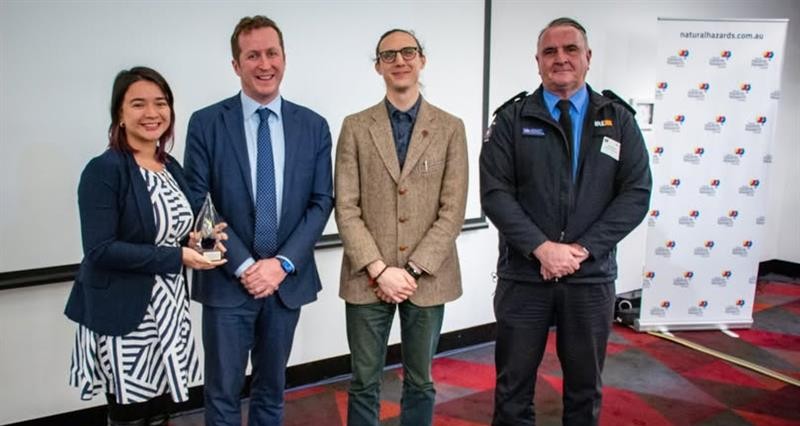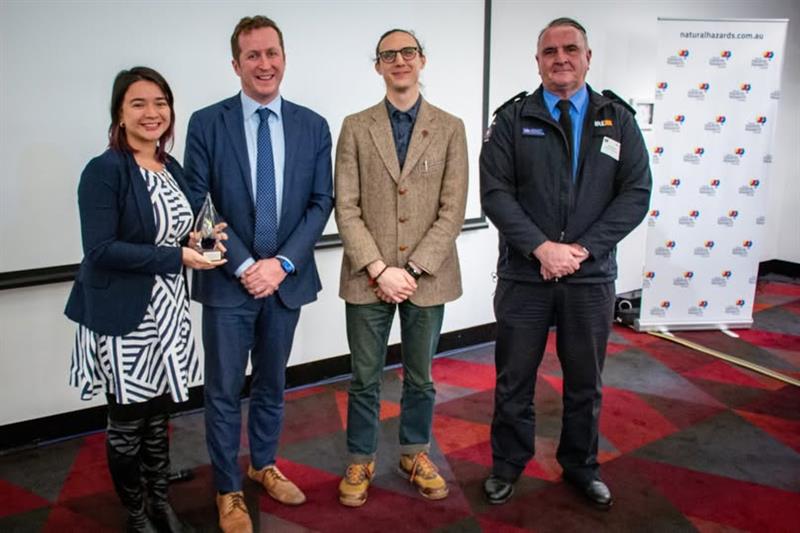
Huon Valley Council is celebrating a remarkable national achievement, with its Manager of Environmental Sustainability, Dr Malcolm Johnson, and the Tasmanian team taking out first place in the 2025 Disaster Challenge national finals held in Hobart yesterday (14 October).
The team impressed judges with their project, Thriving Coastal Futures in Southern Tasmania — an initiative developed in the Huon Valley to empower the Garden Island Sands community to address coastal erosion through nature-based, community-led solutions. The project offers a practical model for coastal resilience that could be adopted across Australia.
Led by representatives from Huon Valley Council, the Department of Natural Resources and Environment Tasmania, and academic researchers, the project highlights what can be achieved when all levels of government work alongside local communities.
The 2025 competition featured three national finalists. Natural Hazards Research Australia CEO Andrew Gissing said this year’s projects were among the most forward-thinking in the Challenge’s four-year history.
Dr Johnson said it was inspiring to share the moment with the community that inspired the work. “Seeing residents of Garden Island Sands cheering us on – both in the room and online – reminded us why this matters,” Dr Johnson said. “Their determination has driven this project from the start and proven that local action can lead national change.”
Garden Island Sands community member Angela Bird said “It was exciting to hear the pitch presented by Malcolm and his team. I hope it leads to action, support and awareness not just for our community but for all communities facing losing their coastline at an alarming rate.”
Acting Huon Valley Mayor Toby Thorpe said the award was a proud moment for the entire region. “This win shows that innovation grows strong in the Huon,” Cr Thorpe said. “Malcolm and the team have shown that when governments and communities work together, we can find smart, sustainable answers to the big environmental challenges we face.”
As national champions, the Tasmanian team receives $5,000 and the opportunity to develop its concept further with Natural Hazards Research Australia, continuing to showcase Tasmania’s leadership in building climate resilience.


